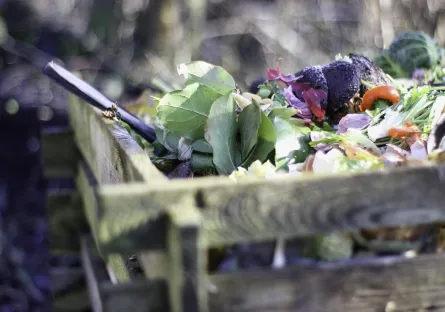
Today is World Environment Day! This is a day of international recognition that shines a spotlight on the dangers of plastic pollution. It emphasizes our direct impact on the environment and how the choices we make - no matter how small or insignificant they may seem- have a cumulative effect on our world. To choose to live a more sustainable life can be a challenge at times but it is a worthy and rewarding endeavor. Here are a few things you can do to put yourself on the path to being more sustainable.
Use Less Plastic
One of the most impactful things you can do to live more sustainably is to reduce your plastic use. Plastic can take anywhere from 20 to 500 years to decompose. Even when it does break down quickly, it never completely goes away: it dissolves into microplastics, tiny bits of plastics that can get into our food and water supply. Because of the long decomposition period, plastics can have a profoundly negative effect on the environment by contaminating water sources, harming wildlife, and disrupting ecosystems.
An effective way to cut down on plastic use is to eliminate single-use plastics as much as possible. Instead of disposable water bottles, get a reusable water bottle. Take your lunch to work? Opt for a lunchbox or pail and wrap your foods in paper towels instead of plastic bags. Use tote bags for groceries. Buy silverware or other reusable utensils instead of using disposable ones. Need any plastic-based consumer goods or household items? Consider hitting up thrift stores to get them secondhand.
Start Composting
The next time you're about to throw away a banana peel or dump out brewed coffee grounds, consider composting them instead. Composting foodstuffs, greenery, and some paper/cardboard products helps break these substances down into a soil-enriching, natural fertilizer. Microorganisms (bacteria and fungi) decompose these bits of organic matter over time, creating nutrient-dense compost that can help plants grow.
In addition to supporting local flora and fauna by keeping your soil healthy, composting also positively impacts the environment by cutting down on waste disposal. Every time you compost something you're keeping it from getting disposed of in a landfill or incinerator, which in turn cuts down on greenhouse gases emitted by waste disposal sites that impact our atmosphere.
You can start composting at home by by setting up a compost bin. Make sure the bin has a reinforced lid and no holes or gaps in it larger than a 1/4 inch, as improperly secured compost could attract pests and rodents. You'll want to maintain a ratio of "brown" and "green" waste in your bins, ideally two to three parts carbon-rich material (browns) to one part nitrogen-dense goods (greens). Avoid adding any meat, dairy, or greasy foods to your compost.
What can you compost? Here’s a few things to get you started:
- Tea bags (non-plastic, staples removed)
- Nail clippings
- Corks
- Egg shells
- Vegetable and fruit scraps
- Leaves and other yard waste
- Cardboard
- Sawdust
- Coffee grounds
- Animal manure (herbivores)
- Newspapers and non-glossy paper
- Wood chips
Be Energy Efficient
You don’t have to install solar panels on your home to be more eco-friendly about your energy usage (though if you have the means to do so, it’s not a bad idea). We tend to use more energy than we need. A case in point is “energy vampires”: our homes can be full of plugged-in, idle devices that aren’t doing anything yet continue to use up electricity. Check your outlets: how many electronics, appliances, and other items do you have plugged in right now that you aren’t using? If you’re not using them, unplug them. Consider picking up a few power strips to make it easier to switch off groups of things en masse as needed.
You should also think about switching out any incandescent light bulbs you have now for LED bulbs. LED bulbs last much longer than incandescents and use a lot less energy. Investing in window treatments like solar shades, blinds, shutters, or blackout curtains is another good idea. Too much unobstructed sunlight entering your home will heat up, which in turns makes your A/C work harder to compensate for the temperature rising and thus burning a lot more energy.
Change Your Car Habits
Do you drive a lot? A great way to live more sustainably is to reduce your car usage. When possible, carpool with friends and/or co-workers. Walk or use a bicycle. Use public transportation to get around. If you must continue driving by yourself, be strategic with how you use your drive-time. Combine errands so that you make fewer trips. Work from home if you can so you don’t have to burn up so much fossil fuel commuting to work and back.
Article by Austin Brietta
Learn More
Interested in learning more about sustainability? Rio Salado College offers a two-year Sustainability degree program, as well as several certificate of completion programs.